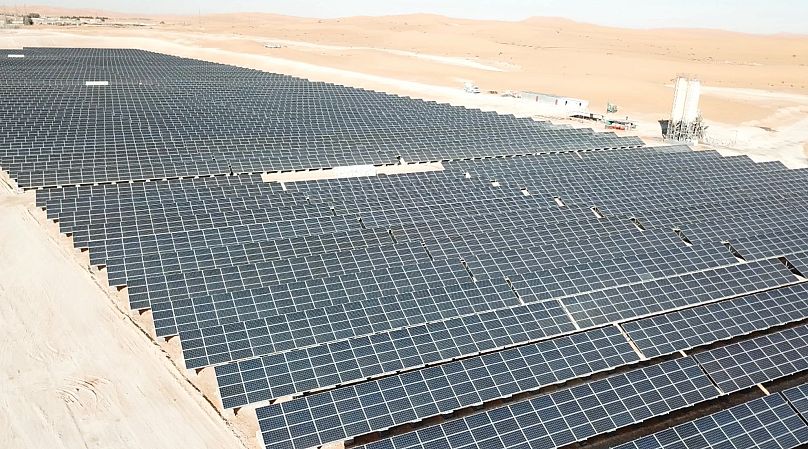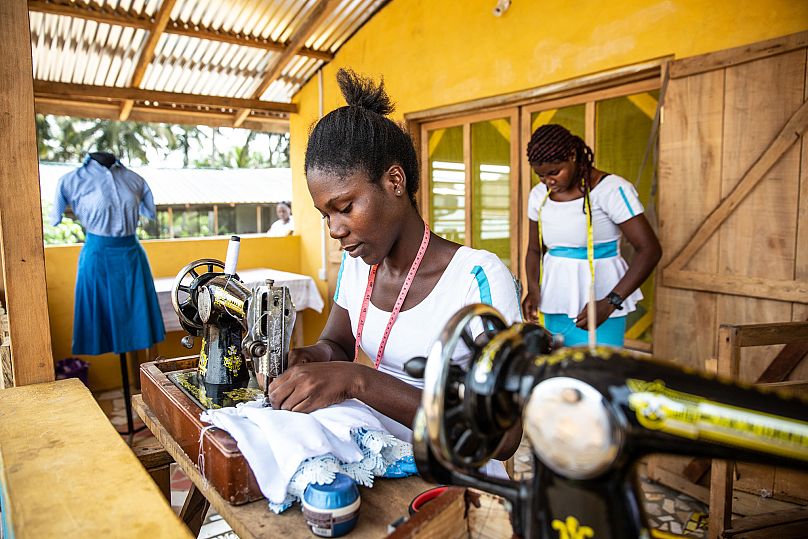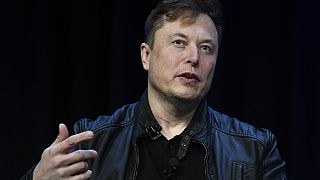Energy
How would you ensure that an energy business operating in over 60 countries and providing more than 30.000 jobs aligns with the world’s climate and development goals? Solid commitments and clear strategies play a key role.
The past year has shown that the fight against climate change and the commitment to a sustainable and just transition have now become clear guidelines for the global agenda, as more and more governments, as well as investors, prioritize them in their agendas.
The private sector has a crucial role to play, especially when we talk about the energy sector. Aware of the challenges and opportunities the fight to climate change creates for people and businesses, energy company Eni wants to be an active part of a virtuous path of the energy sector. For that, it needs to address a key challenge of its sector: ensuring everyone can have access to efficient and sustainable energy while reducing greenhouse gas emissions in line with the goals of the Paris Agreement and working to abide the Sustainable Development Goals (SDGs).
To do that, the company is integrating environmental and social sustainability principles in the whole of its business plan, taking action along three main lines: operational excellence, carbon neutrality by 2050, and forging alliances for development.
To become carbon neutral in the next 30 years, Eni has drawn a medium and long-term plan that will target emissions produced throughout the entire life cycle of its products and use existing technologies for decarbonisation. This means that by 2050, Eni will sell only decarbonised energy products. To support its goals, the company will invest €5.7 billion by 2024 in decarbonisation, circular economy, renewables, and research and development.
“We are taking another step forward in boosting our transformation. We commit to the full decarbonisation of all our products and processes by 2050. Our plan is concrete, detailed, economically sustainable and technologically proven,” said Claudio Descalzi, Eni CEO, when he presented the company’s 2021-2024 Strategic Plan earlier this year.
To get to 2050 goals, Eni’s decarbonisation targets include:
- reducing the absolute GHG emissions by 25% by 2030,by 65% by 2040 (relative to 2018) and by 100% by 2050;
- reducing the net carbon intensity of energy products sold by 15% by 2030 and, 40% by 2040 and by 100% by 2050;
Reaching those targets will include a wide range of actions. To give a strong boost to sustainable mobility, the company will progressively increase the processing capacity of its bio-refining plants, which has already doubled since 2019, and, starting from 2023, will no longer use palm oil as raw material. It will increase renewable energy capacity to 60 GW by 2050 and reduce hydrocarbon production in the medium term, with a relative increase in the share of natural gas. Hydrogen will power Eni biorefineries and other highly energy-intensive industrial activities.
Carbon capture and storage is also part of Eni’s decarbonising strategy, as the company wants to create worldwide storage hubs to decarbonise its plants and refineries and third-party plants.
New technologies, such as Waste to Fuel that converts urban waste into bio-oil and bio-methane will play an increasingly important role. Eni has also launched innovative systems that can access to clean, safe and inexhaustible energy sources, such as the transformation of wave energy into electricity and the confinement fusion of two hydrogen nuclei – still in the experimental stage – that generates energy without greenhouse gases emissions.
To further reduce its carbon footprint toward net-zero, Eni is also investing in REDD+ forestry projects which protect primary and secondary forests in Africa, South Asia, and Latin America, targeting to offset more than 6 metric tons of CO2 per year (MTPA) by 2024 and over 40 MTPA by 2050.
To be successful in the energy transition, a collaborative approach is essential. Indeed, companies and public actors, as well as civil society organizations, must work together to shape ad hoc solutions for each economic entity and for each country, as there is no one unique path towards carbon neutrality. That is why Eni is strengthening its alliances in the countries it works in to promote development and meet the needs of local communities in line with national development plans and the UN 2030 Agenda. What sets the company apart is its “Dual Flag” strategy it uses in partner countries, which means Eni constantly interacts with local institutions and stakeholders to improve livelihoods and create new growth opportunities. Through its Local Development Programmes (LDPs), Eni invests in energy access, economic diversification, training, community health, water and sanitation access and land protection, aligning with the national and regional contexts and international sustainability agendas.
During the pandemic, the company has also boosted its alliances and partnerships, as it worked closely with countries to track the health of local communities and address healthcare and education issues, social protection, or basic necessities’ access. For instance, to promote local sustainable development, Eni is working closely with the UN’s Food and Agriculture Organisation (FAO) and food banks to improve food security in Nigeria, with the United Nations Development Programme (UNDP) to improve access to sustainable energy and mitigate climate change across African countries, and with the UN’s Industrial Development Organisation (UNIDO) to improve youth employment and agrifood chains in countries like Mozambique and Congo.
In 2020, Eni has also started new collaborations with civil society organisations such as AMREF, AVSI, CUAMM, and VIS, which will help create local partnerships that improve energy access, economic diversification, education, access to utilities and healthcare especially for vulnerable groups. The group is also developing participatory projects with Indigenous communities and their representatives to make sure that energy projects and infrastructure respect the rights of the local peoples.









![Cyber Africa Forum highlights Benin's bold digital resilience [Business Africa]](https://static.euronews.com/articles/stories/09/33/14/38/320x180_cmsv2_675083a0-3d42-5b59-aba8-cbd15242e6d9-9331438.jpg)







01:39
Sustainable development financing conference opens in Seville
01:15
Morocco says 2024 was the hottest year with temperatures reaching 47.7 degrees
11:15
Africa CEO Forum 2025: Nuclear, AI, and Infrastructure in focus [Business Africa]
11:18
Africa accelerates towards energy and economic sovereignty with DRC mining growth {Business Africa}
Go to video
Major nations agree on first global tax on shipping’s greenhouse gas emissions
Go to video
The Okwelians: Unlocking New Economic Paths for Cameroon [Business Africa]